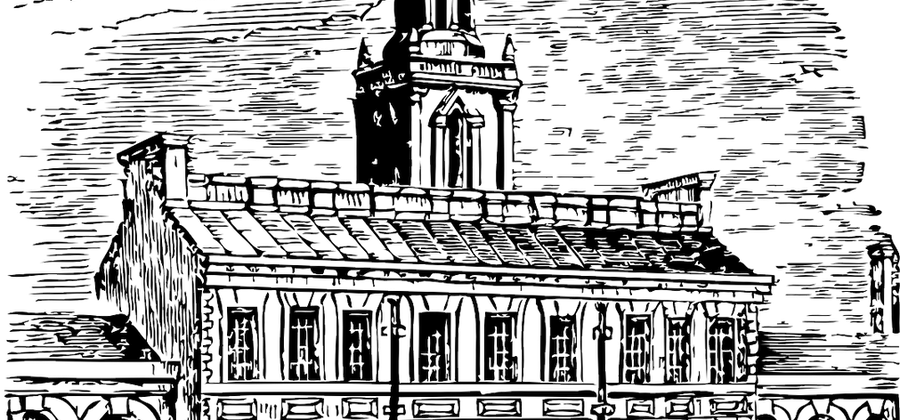Thank you for returning and subscribing to the Common Sense Civics and Citizenship newsletter. It’s great to have you here. I get a lot of questions about the Constitution.We address two of them this week. Can the Constitution ever be removed from the American people?” and “How did our Constitution come about?” Let’s dive right in!
How did our Constitution come about? Did our Framers mosey into an English style Pub, order an adult beverage, and begin kicking some ideas around the table? Who inspired them? Today, social media has key influencers. Although our Framers of the Constitution did not have the internet, they had “influencers” whose ideas stood the test of time. These ideas eventually became a part of our Supreme Law of the Land (see Article VI). Let’s take a look:
There were very few deists in the 18th century, contrary to what is commonly taught today. Therefore, deists were outnumbered. The Framers’ had this in common: a belief in the Christian faith’s moral values (not religious doctrine) that are still widely held today. You know the ones-don’t cheat, steal, lie, covet, murder, have no idols, treat others the way you want to be treated, etc. They believed that we are created beings, and to the Creator we must give an account.
The Framers were widely read, studious citizens. They leaned upon historical and contemporary ideas about government -ideas that, when applied, worked.
For example, take Baron Charles Montesquieu from France, who reasoned that God is the author of all moral and physical laws, but humans are prone to go their own way, do their own thing, and depart from God’s laws. He proposed that the government’s job was to restrain the impulse to give a single leader unlimited power to avoid despotism. The government’s duty is to maintain order, not promote selfishness or lawlessness. To do otherwise leads to tyranny with a leader who exercises absolute power over the citizenry.
Montesquieu’s works influenced our Framers to divide the power between three branches-legislative, executive, and judicial. This avoids merging all the power in one individual or a single department. Ultimately, separation of powers leads to freedom.
John Locke was another influencer informing American political theory. He reasoned that government was a contract with the people. He believed in the idea of natural rights- that all law ultimately must agree with the Creator’s law. Locke proposed that our rights to life, liberty, and property belong to us and are not gifted to us by our government.
William Blackstone wrote the “Commentaries on the Laws of England.” He contributed the idea of judicial restraint. In other words, judges do not make law. Judges are to discover and apply the law from the laws of nature and nature’s God, laws of the land, and precedent. Judges are not to follow their own biases or preferences.
The Framers had additional influences from the Bible to international philosophers and non-Christian sources. In other words, they were well-rounded in their sources that formed the basis of our Constitution. Besides, they had the Articles of Confederation in operation. Still, the Articles were too loose, and the opportunity for chaos was too great, with the possibility of future tyranny as the result if they didn’t add more structure. Thus, the Constitution was written.
Our Framers had to solve the balance of power problem. “How do we give our government power but limit that power so that our government or a single person doesn’t become too powerful?” That’s the question they set out to answer that led to our Constitution. So, they limited and delegated the power, divided the power, and had checks and balances on that power while preserving individual rights.
The Framers did a great job answering the balance of power question. In fact, they answered a lot of questions on how to have a self-governing country by writing our Constitution.
This is Common Sense Civics and Citizenship. 🇺🇸

